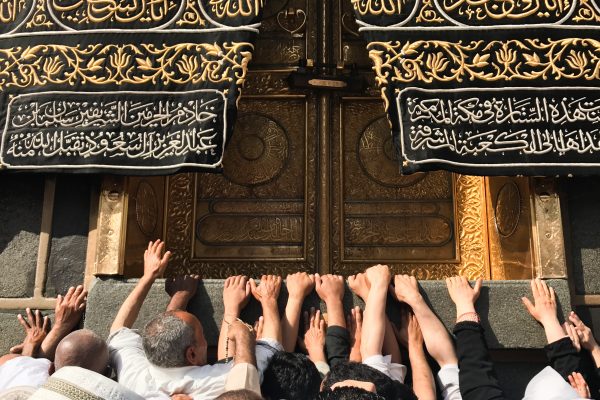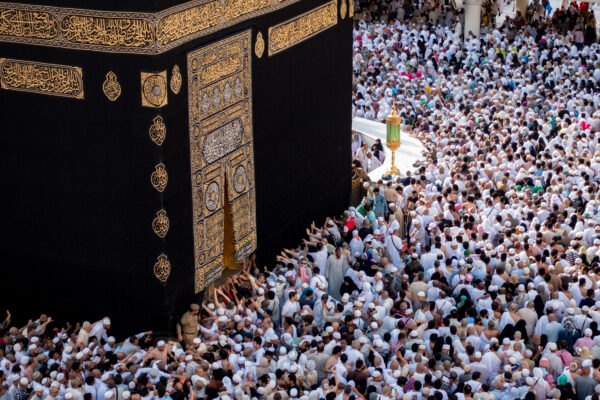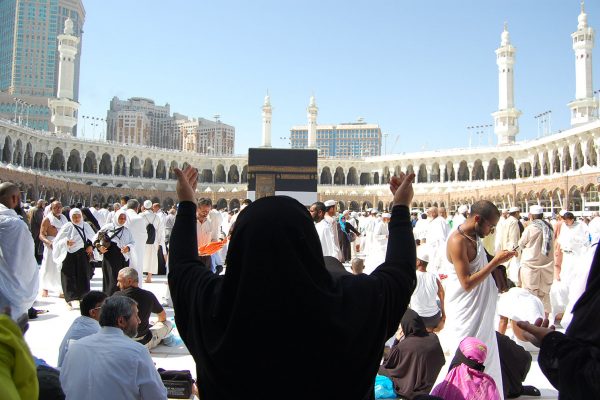There’s still so much you can do in the blessed month of Dhul-Hijjah!
There’s still so much you can do in the blessed month of Dhul-Hijjah!
Many Muslims dream of making the pilgrimage to Mecca at least once in their lifetime. However, not everyone is able to go due to financial constraints. Perhaps the new raffle system implemented by Saudi Arabia has scuppered your plans. Here are nine things you can do to still connect with Allah (SWT).
make a sincere intention to go hajj next year
Making the intention to perform hajj is an act that can be done by anyone, regardless of their circumstances. Even if you are unable to go next year, know that your intention was still sincere and that you will still be rewarded by Allah (SWT).
Follow up your intention with action
In the Holy Qur’an, Allah (SWT) says He won’t change the condition of people unless they strive the change themselves. If you are serious about making the pilgrimage it’s important to prepare practically. Start by saving up money so that you can afford the travel and accommodation costs. You will also need to be reasonably fit and healthy, as the hajj involves a lot of walking. If you are not used to walking long distances, start visiting the gym now and build up your stamina. Finally, learn as much as you can about the hajj rituals so that you know what to expect. By taking these practical steps, you can show God that you are serious about making the pilgrimage and that you are ready to embark on this sacred journey.
ask Allah for the opportunity to go for hajj
Dua is a weapon of the believer! For those who are unable to make the journey, they can still pray to God that He will give them the opportunity to do so. You can even those going to make the dua for you. A dua recited in the vicinity of the holy lands will have a much greater weighting!
Remember god often through dhikr
One of the most important things that a Muslim can do is to remember Allah. This helps us to stay on the right path and keep our hearts and minds focused on what is truly important. By remembering Allah, we not only draw closer to Him, but we also receive His blessings in this life and the next.
Seek repentance
As Muslims, we believe that Allah is merciful and forgiving. He is always ready to forgive us if we turn to Him in repentance. Repentance is an important part of our faith because it shows our willingness to change our ways and turn back to Allah. When we repent, we are acknowledging our mistakes and ask for Allah’s forgiveness. We are also making a commitment to change our ways and live according to His laws – and what better month to do this than Dhul-Hijjah.
Fast as much as you can
According to Sunan al-Nasai, the Messenger of Allah would fast nine days of Dhul-Hijjah. There are great merits to fasting. The summer days are long, but if you can fast a couple of days, the rewards are innumerable.
Recite Takbeerat-e-tashreeq
Takbeerat-e-tashreeq is obligatory for all Muslims who are performing the hajj pilgrimage (after 9th Dhul-Hijjah) but there is absolutely no harm in those not going to recite it as much as they can every day. It goes like this:
Allahu Akbar, Allahu Akbar, La Ilaha Ilallahu Wallahu Akbar, Allahu Akbar, Wa Lillahil Hamd.”
Recite the tahlil (Saying la ilaha illallah)
Muslims recite tahlil to remember and affirm the oneness of God. When we recite tahlil, we are affirming that there is no god but God, which is the core belief of Islam. Tahlil also reminds us of our ultimate goal in life, which is to return to God. We should recite tahlil regularly as a way to stay focused on our purpose in life and to keep our hearts and minds free from worldly concerns. The act of reciting tahlil also helps us to feel close to God and to remember His blessings in our lives.
offer a qurbani
One of the most important parts of the Hajj pilgrimage is the offering of a Qurbani, or sacrificial animal. This act is seen as a way of commemorating the story of Abraham, who was willing to sacrifice his son at God’s command. The Qurbani is, of course, compulsory for pilgrims but highly recommended for all Muslims. The meat from the sacrificial animal is distributed to the poor and needy, providing them with a much-needed source of nourishment.





